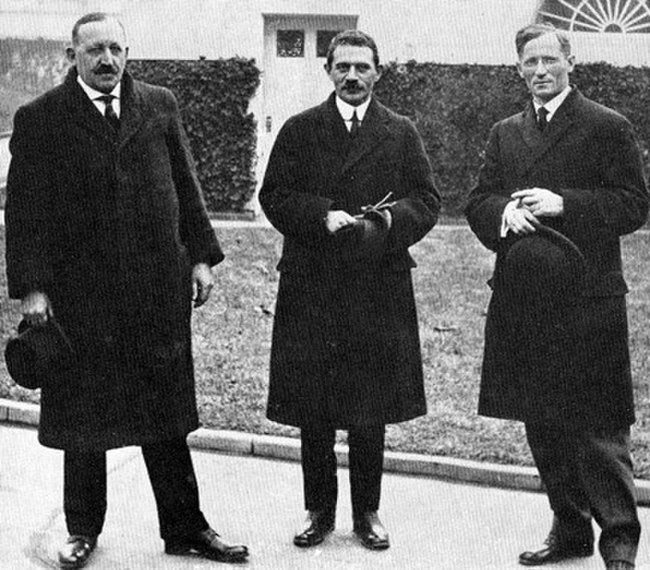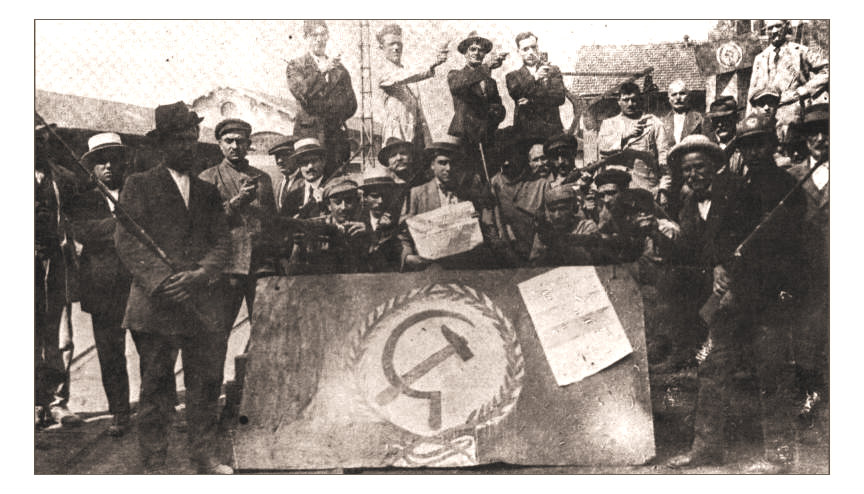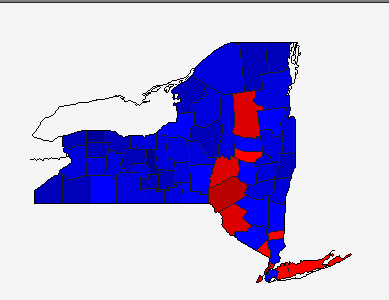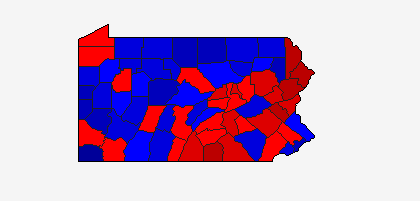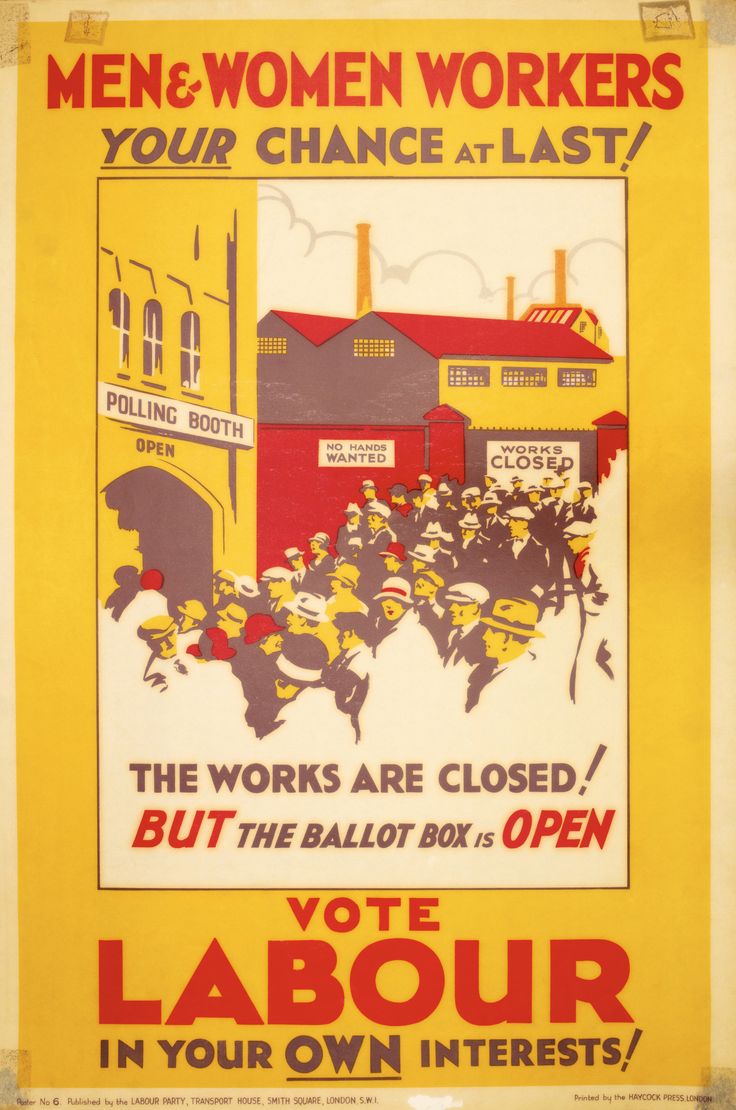1919 in World Politics
The Year was 1919

RGA soldiers at the second battle of Berlin (1919)
1918 saw the end of a bloody world war, the death of president, and the subsequent chaos that ensued. The new president Hiram Johnson was not inexperienced when he took office. He was Governor of California for a little over a year when he was chosen as a vice presidential running mate for Theodore Roosevelt in 1912 and was chosen a balance of eastern and western progressivism that the ticket offered. His experience in national politics however came as vice president from March of 1913 to January of 1918.
He was known as a very quiet vice president never making much public outings to the president and was overshadowed greatly by the presence of the president whose presence could overshadow any really. He never really used his tie breaking vote in the Senate as most bills were decided by 51-48 margins without a need for a tie breaker and others went the way of 55-60 to 40-45 in which the winner was obvious and yet again did not need a tie breaker. The very few ties that did occur were over very minor pieces of legislation that make it the congress. But he still was learning the ins and outs and politics and was able to establish himself as a politician in Washington DC by the 1914 Midterms.
He was also very inactive when it came to policy decisions for the country as a whole. With the president and himself agreeing on most issues, Johnson did not make a ruckus when major legislation that the president supported was trying to be passed. He made it clear that he supported a progressive agenda and tried to remain as uncontroversial as possible. The only major difference he had with Roosevelt was on foreign policy. Unlike Roosevelt's' "big stick" ideology of always having a prepared military for intervention if diplomacy didn't work, the Vice President was a avid Isolationist supporting almost all opposition to any wars the United States was brought into and this included the First World War. Roosevelt who had decided that diplomacy would not work decided that the Lusitania sinking was a justified declaration of war against Germany.
Johnson didn't think so and declared to the "The Des Moines Register" that "I condemn in the highest possible manner any United States participation in the war between the European powers. It is a European affair and should stay that way, no United States presence is needed no matter who is on the winning side". He tried to talk Roosevelt out of the war in the early days saying how thousands of men would die in the process is guaranteed. He failed of course but made it clear he was not with Roosevelt on this. He even showed this in 1917 when a he broke a tie of more military funding to Mesopotamia in the "Military Funding Act of 1917" in favor of killing the bill in the Senate. Roosevelt was frustrated with this and condemn Johnson for his actions of trying to "defund our american soldiers of precious supplies overseas".
He said Johnson was doing exactly what Germany would want him to do. But tensions soon settled and would never reach that peak again. Forward a year to January 1918 and the President collapses due to a blood clot in the lungs. Unable to do his job, the Vice President becomes the president for 33 days and learns valuable presidential skills and passes some major legislation while he is there. The president recovers and he is resigned back to the Vice Presidency. Roosevelt's condition never gets better however and he dies in his sleep due to a blood clot in the Lungs in September at the age of 59.
This time the Vice president is the actual president for much longer then 33 days. And that leads up to the next year. The new president first year in office would now be officially begin and he would be tested from there. The first act of that year was to review the new treaty that was being developed in Paris to decide post war Europe. At a conference with delegates from all Allied country's and also Central Power ones, the Treaty of Paris (1919) was being reviewed.
The conference would last a full week and President Hiram Johnson was invited and attended the conference there. After intense argument's by allied delegates on how destructive and how much should the central powers pay in reparations they came to a agreement. The Treaty of Paris was decided and released to the Public on January 15th. The treaty was 13 chapters long with thousands of words in each. The content included in summary:
- The need for a creation of a Union of Nations alliance. This section was vetoed by Hiram Johnson and the United States but was overridden by most other nations give 1 or 2. The Union of Nations as it was called would make sure a World War like this would never occur again. The alliance would call for the end of Nation Building and Imperialism too which Hiram Johnson supported
- The boundaries of Europe would be swiftly withdrawn. The Central Powers of Austria-Hungary, Germany, and Bulgaria would be shrunken whose lands given to allied nations. In Germany to the West, France advance up to the Rhine River as the New Border and Belgium gained some lands. To the East Germany would give up almost all lands of Prussia including the ancient port city of Danzig to the newly formed Polish State. Up North, the Danish would advance more to the peninsular south, and finally Hamburg would become a demilitarized zone. Lithuania would also take Memel. In Austria-Hungary, the Nation would be broken up between the Hungarian Kingdom and Austria. The Yugoslav Republics of Slovenia, Bosnia, and Croatia is formed to the South and would later join Serbia to Form the Yugoslav Kingdom, to the North the Czech and Slovak peoples gain a nation of there own though unite and form Czechoslovakia in 1921. Hungary meanwhile would take the remaining territory of Historical Hungary but would soon lose most in upcoming wars to Romania and the Yugoslavs. Austria meanwhile would abolish its monarchy and the territory remaining would include all of Austria Proper plus the German areas in Czechia. Italy would gain Trieste and gain all of the Tyrol Region from Austria. Bulgaria would lose Dobruja to Romania and leave all occupies lands in the war in Serbia and Greece.
- All overseas territory's of the Central powers would be given to allied country's. The German territory's in Asia and Austria-Hungary port city's there would be given to Japan while the German African territory's would be given to Portugal and Britain in Namibia and Tanzania.
- Germany revokes all claims to other country's in Europe and Abroad.
- Germany's army shall be reduced and supervised for a period of 10 years.
- All Allied POW's shall be released within a 5 year span and vica versa.
- The Allies impose mass reparations on all Central Powers that must be payed off.
The burdens from the treaty would be lifted within 15 years if the Central Powers does all the listed topics including reparation, prisoner swap, and military reduction. The treaty was harsh and as soon as was read, the German delegation left the conference however the treaty still went on and was published. The treaty would come into effect on December 13th, 1919.
As this occurred chaos was still gripping Germany and Russia. In Germany the Revolutionary Germans army had established itself as a legitimate force to be reckoned with and by the signing of the treaty had controlled all of Eastern Germany including the Capital Berlin. What was left of the German Government coalesced around Munich and established its as the First German Republic electing Hermann Müller of the Social Democrats as Chancellor. The main German army collapsed and the troops within it split even between the rival forces. Wanting a democratic Germany the allies supported the German Republic arming them with weapons and money.
This seemed to work and the German Republic was able to enter the outskirts of Berlin and advanced greatly in Eastern Germany. Things were going well for the Republicans until a RGA officer assassinated Hermann Müller in Mannheim. The Republic went into chaos with no organized successor and multiple factions within the government began to compete for power. It wasn't until a Military Coup in April 1919 that order was restored and a Military government was established with popular military general Paul von Hindenburg taken charge of the republic and took authoritarian turns to control and keep it from collapsing. This coup helped distract Republican forces in Berlin and at the Second Battle of Berlin the republican troops were crushed in guerrilla warfare by the RGA. The RGA pushed the republicans out of eastern Germany and advance along the Northern German plains taking one industrial city after another. There they receive mass support from city workers and in some even were helped they them bolstering there numbers. They were less popular in the south though and that remained a Republican stronghold.
In June of 1919 the Bonn Offensive occurred in which a 110,000 German RGA army lead German Military General Karl Liebknecht, a veteran from the First Battle of Berlin. They advanced with little resistance and entered Bonn on July 3rd only to face a Republican army of 79,000 troops there prepared for battle. Republican spies had warned troops in the city of a attack and they were ready. Caught off guard, the RGA camped outside the city reading for a attack. On July 5th, the first battle of the Bonn occurred. RGA forces rushed from the western half of the city destroyed must of it as it went and also picked up some disaffected poorer citizens in the city as they went.
They faced resistance as they left but faced the front of the republican forces in the eastern half. After mass causality on most sides the RGA retreated from the eastern half and solidified the western half of the city. The battle resulted in 55,000 causality's for the RGA and 43,000 for the German Republicans. Of one of those a young republican infantryman named Adolf Hitler was killed in the crossfire and would become famous for his heroism in the battle and becoming something of a legend of the war killing up to 102 RGA men and wounding dozens of others.

RGA soldiers at the second battle of Berlin (1919)
1918 saw the end of a bloody world war, the death of president, and the subsequent chaos that ensued. The new president Hiram Johnson was not inexperienced when he took office. He was Governor of California for a little over a year when he was chosen as a vice presidential running mate for Theodore Roosevelt in 1912 and was chosen a balance of eastern and western progressivism that the ticket offered. His experience in national politics however came as vice president from March of 1913 to January of 1918.
He was known as a very quiet vice president never making much public outings to the president and was overshadowed greatly by the presence of the president whose presence could overshadow any really. He never really used his tie breaking vote in the Senate as most bills were decided by 51-48 margins without a need for a tie breaker and others went the way of 55-60 to 40-45 in which the winner was obvious and yet again did not need a tie breaker. The very few ties that did occur were over very minor pieces of legislation that make it the congress. But he still was learning the ins and outs and politics and was able to establish himself as a politician in Washington DC by the 1914 Midterms.
He was also very inactive when it came to policy decisions for the country as a whole. With the president and himself agreeing on most issues, Johnson did not make a ruckus when major legislation that the president supported was trying to be passed. He made it clear that he supported a progressive agenda and tried to remain as uncontroversial as possible. The only major difference he had with Roosevelt was on foreign policy. Unlike Roosevelt's' "big stick" ideology of always having a prepared military for intervention if diplomacy didn't work, the Vice President was a avid Isolationist supporting almost all opposition to any wars the United States was brought into and this included the First World War. Roosevelt who had decided that diplomacy would not work decided that the Lusitania sinking was a justified declaration of war against Germany.
Johnson didn't think so and declared to the "The Des Moines Register" that "I condemn in the highest possible manner any United States participation in the war between the European powers. It is a European affair and should stay that way, no United States presence is needed no matter who is on the winning side". He tried to talk Roosevelt out of the war in the early days saying how thousands of men would die in the process is guaranteed. He failed of course but made it clear he was not with Roosevelt on this. He even showed this in 1917 when a he broke a tie of more military funding to Mesopotamia in the "Military Funding Act of 1917" in favor of killing the bill in the Senate. Roosevelt was frustrated with this and condemn Johnson for his actions of trying to "defund our american soldiers of precious supplies overseas".
He said Johnson was doing exactly what Germany would want him to do. But tensions soon settled and would never reach that peak again. Forward a year to January 1918 and the President collapses due to a blood clot in the lungs. Unable to do his job, the Vice President becomes the president for 33 days and learns valuable presidential skills and passes some major legislation while he is there. The president recovers and he is resigned back to the Vice Presidency. Roosevelt's condition never gets better however and he dies in his sleep due to a blood clot in the Lungs in September at the age of 59.
This time the Vice president is the actual president for much longer then 33 days. And that leads up to the next year. The new president first year in office would now be officially begin and he would be tested from there. The first act of that year was to review the new treaty that was being developed in Paris to decide post war Europe. At a conference with delegates from all Allied country's and also Central Power ones, the Treaty of Paris (1919) was being reviewed.
The conference would last a full week and President Hiram Johnson was invited and attended the conference there. After intense argument's by allied delegates on how destructive and how much should the central powers pay in reparations they came to a agreement. The Treaty of Paris was decided and released to the Public on January 15th. The treaty was 13 chapters long with thousands of words in each. The content included in summary:
- The need for a creation of a Union of Nations alliance. This section was vetoed by Hiram Johnson and the United States but was overridden by most other nations give 1 or 2. The Union of Nations as it was called would make sure a World War like this would never occur again. The alliance would call for the end of Nation Building and Imperialism too which Hiram Johnson supported
- The boundaries of Europe would be swiftly withdrawn. The Central Powers of Austria-Hungary, Germany, and Bulgaria would be shrunken whose lands given to allied nations. In Germany to the West, France advance up to the Rhine River as the New Border and Belgium gained some lands. To the East Germany would give up almost all lands of Prussia including the ancient port city of Danzig to the newly formed Polish State. Up North, the Danish would advance more to the peninsular south, and finally Hamburg would become a demilitarized zone. Lithuania would also take Memel. In Austria-Hungary, the Nation would be broken up between the Hungarian Kingdom and Austria. The Yugoslav Republics of Slovenia, Bosnia, and Croatia is formed to the South and would later join Serbia to Form the Yugoslav Kingdom, to the North the Czech and Slovak peoples gain a nation of there own though unite and form Czechoslovakia in 1921. Hungary meanwhile would take the remaining territory of Historical Hungary but would soon lose most in upcoming wars to Romania and the Yugoslavs. Austria meanwhile would abolish its monarchy and the territory remaining would include all of Austria Proper plus the German areas in Czechia. Italy would gain Trieste and gain all of the Tyrol Region from Austria. Bulgaria would lose Dobruja to Romania and leave all occupies lands in the war in Serbia and Greece.
- All overseas territory's of the Central powers would be given to allied country's. The German territory's in Asia and Austria-Hungary port city's there would be given to Japan while the German African territory's would be given to Portugal and Britain in Namibia and Tanzania.
- Germany revokes all claims to other country's in Europe and Abroad.
- Germany's army shall be reduced and supervised for a period of 10 years.
- All Allied POW's shall be released within a 5 year span and vica versa.
- The Allies impose mass reparations on all Central Powers that must be payed off.
The burdens from the treaty would be lifted within 15 years if the Central Powers does all the listed topics including reparation, prisoner swap, and military reduction. The treaty was harsh and as soon as was read, the German delegation left the conference however the treaty still went on and was published. The treaty would come into effect on December 13th, 1919.
As this occurred chaos was still gripping Germany and Russia. In Germany the Revolutionary Germans army had established itself as a legitimate force to be reckoned with and by the signing of the treaty had controlled all of Eastern Germany including the Capital Berlin. What was left of the German Government coalesced around Munich and established its as the First German Republic electing Hermann Müller of the Social Democrats as Chancellor. The main German army collapsed and the troops within it split even between the rival forces. Wanting a democratic Germany the allies supported the German Republic arming them with weapons and money.
This seemed to work and the German Republic was able to enter the outskirts of Berlin and advanced greatly in Eastern Germany. Things were going well for the Republicans until a RGA officer assassinated Hermann Müller in Mannheim. The Republic went into chaos with no organized successor and multiple factions within the government began to compete for power. It wasn't until a Military Coup in April 1919 that order was restored and a Military government was established with popular military general Paul von Hindenburg taken charge of the republic and took authoritarian turns to control and keep it from collapsing. This coup helped distract Republican forces in Berlin and at the Second Battle of Berlin the republican troops were crushed in guerrilla warfare by the RGA. The RGA pushed the republicans out of eastern Germany and advance along the Northern German plains taking one industrial city after another. There they receive mass support from city workers and in some even were helped they them bolstering there numbers. They were less popular in the south though and that remained a Republican stronghold.
In June of 1919 the Bonn Offensive occurred in which a 110,000 German RGA army lead German Military General Karl Liebknecht, a veteran from the First Battle of Berlin. They advanced with little resistance and entered Bonn on July 3rd only to face a Republican army of 79,000 troops there prepared for battle. Republican spies had warned troops in the city of a attack and they were ready. Caught off guard, the RGA camped outside the city reading for a attack. On July 5th, the first battle of the Bonn occurred. RGA forces rushed from the western half of the city destroyed must of it as it went and also picked up some disaffected poorer citizens in the city as they went.
They faced resistance as they left but faced the front of the republican forces in the eastern half. After mass causality on most sides the RGA retreated from the eastern half and solidified the western half of the city. The battle resulted in 55,000 causality's for the RGA and 43,000 for the German Republicans. Of one of those a young republican infantryman named Adolf Hitler was killed in the crossfire and would become famous for his heroism in the battle and becoming something of a legend of the war killing up to 102 RGA men and wounding dozens of others.

